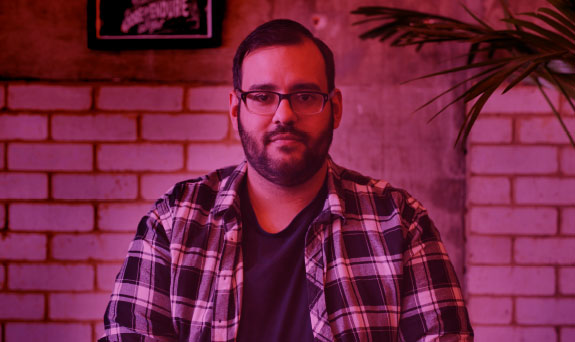
We are industry-leading experts, here to make claiming medical negligence simple and to get you the maximum compensation you deserve.
Start your claimGet Your Free Claim Assessment Now
The Medical Negligence Experts
We are industry-leading experts, here to make claiming medical negligence simple and to get you the maximum compensation you deserve.
Welcome to the Medical Negligence Experts
The Medical Negligence Experts offer years of experience working with those who suffer at the hands of the medical industry.
Whatever you were a victim of:
- Clinical negligence,
- Dental negligence,
- Pharmacy negligence, or anything in-between
No Win No Fee* Agreement
Suffer from an illness or injury as a direct result of the negligence of medical practitioners? Then you may be eligible to bring forward a claim. Moreover, in these difficult situations, legal costs to build your case might be a concern.
No Win No Fee: Fee Information
*Typically, customers pay 25% including VAT of the compensation amount that is recovered by our third-party law firms, although this is subject to your individual circumstances and the actual fee may be more or less than this. Termination fees may apply if you do not keep to the terms of the agreement.
There is peace of mind working with a medical negligence solicitor who works on a No Win, No Fee* basis.
- You won’t have to worry about paying any legal fees to your solicitor – unless you win the case.
- It enables anyone to have access to proper legal representation without paying upfront costs.
The Nature of Expenses for These Cases
Claims for medical negligence can involve a longer, more complex process than other forms of personal injury claims. As a result, these cases can become expensive.
However, with a No Win, No Fee* agreement, the defendant (the medical industry) often covers legal expenses. By contrast, one pays the success fee as a percentage from your compensation amount.
So if your solicitor doesn’t win your case for you, you don’t pay them.
Every victim of malpractice should be able to receive support from a top-quality solicitor. You deserve to put forward a compensation claim without having to suffer the further financial burden. You’ll get that with:
- No Win No Fee* agreements, and;
- After the Event (ATE) insurance.
What Is Medical Negligence?
Medical negligence is a broad term that encompasses a wide range of experiences. Indeed, each individual’s experience of medical negligence will vary. But overall, we see it thusly:
Medical negligence occurs when a healthcare professional causes you personal harm due to a preventable issue. This is true if they were working for either the NHS or privately.
There are a number of different reasons why you might make a medical negligence claim. Such as carelessness in surgery that results in avoidable injury. Alternatively, abuse you suffer at the hands of medical professionals in care homes. In a broader sense, the main branches of medical negligence usually involve the following examples.
Medical Accidents
You might suffer an injury as a result of medical negligence, or a medical accident. Did medical professionals fail to meet their duty of care, and this was the cause of your injury?
If yes to both, you may be able to put forward a compensation claim for a medical accident.
Preventable Issues
Medical professionals don’t always treat their patients with the care and attention they deserve. As a result, this provides grounds to put forward a claim:
- if a patient’s condition worsens or;
- faces avoidable complications as a direct result of medical negligence,
For example, consider medical negligence claims which involve preventable issues. Such as inaccurate or incomplete diagnoses, or failure to correctly treat an injury or disease.
Misdiagnosis
Sometimes, misdiagnoses occur when test results are unclear, or when symptoms of an illness or injury present as multiple possibilities. In these instances, ambiguous test results can lead to misdiagnosis through no direct fault of the practice of medical staff.
However, misdiagnosis as a result of human error is more common than many people realise. Any avoidable & incorrect interpretation of test results is absolutely grounds for a medical negligence claim.
For example, if a medical professional doesn’t the acceptable diagnostic practice in order to assess a patient’s symptoms. Subsequently, their actions result in further harm to a patient. As a result, this would provide grounds for a claim for diagnostic error compensation.
Medical Malpractice
Medical malpractice is a broad term encompassing a wide range of reasons why you might make a medical negligence claim. In a general sense, medical malpractice refers to:
any situation within which a medical professional or institution fails in the legal duties they owe their patients.
Making a medical negligence claim means you’ve reason to believe that your doctor was negligent. Either by:
- not taking you seriously;
- misdiagnosing you and;
- in extreme situations, giving you the wrong surgery.
Please note, however, that medical negligence claims are very complex. Because there is a fine line between negligence and an unhappy outcome. When we analyse your case, we’ll find that line and share with you our thoughts on how to proceed.
Benefits of No Win, No Fee* claims
We work with a nationwide network of experienced medical negligence solicitors. This means we can find the right law firm to suit your individual needs. We operate a service that’s proud to deliver the best customer care possible. In addition, we always aim to deliver an excellent outcome for our clients.
Through No Win, No Fee* agreements, everyone can access top legal advice regardless of their finances. Before the introduction of these agreements, the financial risks of pursuing a medical negligence claim were often too daunting for patients looking to seek compensation, due to the expenses associated with these complex cases. Thankfully, by working with a No Win, No Fee* medical negligence solicitor, any financial risk is passed to them, as they won’t be paid unless your claim is successful.
With a No Win, No Fee* agreement, the legal advice that you access will be provided free of charge, and you will also be covered for any work undertaken on your case. In addition to the No Win, No Fee* agreement helping to omit any fears regarding the upfront costs of medical negligence claims, you can also benefit from the peace of mind of knowing that your solicitors are 100% dedicated to obtaining a successful outcome for your case.
As the financial risks of a medical negligence claim now lie with the solicitor, if they agree to support your case, you can be assured that they believe there is a high probability that your case will succeed.
How No Win No Fee works:
*Typically, customers pay 25% including VAT of the compensation amount that is recovered by our third-party law firms, although this is subject to your individual circumstances and the actual fee may be more or less than this. Termination fees may apply if you do not keep to the terms of the agreement.
The Conditional Fee Agreement
With a Conditional Fee Agreement (CFA), you won’t have to pay your solicitor anything if you don’t win your case, providing even more incentive for your solicitor to provide a satisfactory outcome. After all, only in the event that you do win your case will your solicitor be entitled to receive payment.
Even then, these fees don’t need to be a cause for concern, as they are limited to costs for representation and a final success fee. Your solicitor will talk you through any information that you need to know so that you don’t have to worry about any hidden costs once your case is closed.
On top of not facing any upfront costs, one of the biggest benefits of a No Win, No Fee agreement is that you won’t be left with a huge bill to pay at the end of your case. Instead, the success fee that your solicitor receives will be paid as an agreed percentage of your awarded compensation.
ATE Insurance
Legal costs for representation will often vary depending on which firm you use, but if you win your case, it is the defendant who should cover your legal costs. In order to alleviate any apprehension that you might have regarding further potential costs, most solicitors will also recommend that you take out ‘After The Event’ (ATE) insurance.
This will cover the defendant’s costs should you lose the case, as well as potentially covering any disbursements involved in a medical negligence claim. Between the No Win, No Fee agreement and the additional peace of mind of having ATE insurance, any concerns regarding financial obstacles that may have once stood in the way of you making a medical negligence claim can be put to one side.
At the Medical Negligence Experts, we know that claiming medical negligence compensation will not undo the negligence that you have been put through by the medical industry. However, with the help of our team of professionals, we aim to assist you in seeking the financial freedom that you are entitled to, in order to help you continue moving forward.
The UK Clinical Compensation Process
The UK has a very low medical negligence rate, but that does not mean an avoidable mistake cannot occur. The issue when claiming medical negligence is that you need to prove that the healthcare professional did something, or failed to do something, that was unprofessional. If other competent doctors and clinicians would have taken a different route, then you may have a claim for compensation and should seek out legal advice for more information.
What are the common types of medical negligence?
Every case is unique, though the type of medical negligence you face will determine your case and compensation.
- GP negligence occurs when a GP fails to listen to your complaints, does not investigate your symptoms thoroughly despite your wishes, or fails to act accordingly after test results are determined.
- Surgical negligence occurs when the surgery goes wrong due to obvious error. Extreme examples include medical instruments being sewn up into the body or patients undergoing the wrong surgery.
- Dental negligence occurs when your dentist fails in their job that leads to avoidable tooth loss or in the worsening of dental symptoms.
- Misdiagnosis claims occur when a clinician fails in identifying your medical condition. You will need to prove negligence, for example, if they failed to test you or failed to listen to your symptoms.
- Hospital negligence occurs when you suffer during your hospital stay. Being dehydrated, malnourished, suffering from bed sores or even contracting infections are examples.
- Pharmaceutical and prescription errors. This occurs when you receive the wrong prescription of medicine, or the pharmacist (or doctor) enters the wrong dosage.
More common compensation claims
- Birth injuries can occur to both the mother and the baby, due to poor prenatal or postnatal care, or negligence experienced during a birth. A difficult birth, for example, could lead you to make a successful cerebral palsy claim against your healthcare professional.
- Negligent cosmetic procedures occur when cosmetic procedures are done poorly to the extreme detriment of the patient.
- Lack of consent claims occurs when administrators do not adequately explain the risks and available alternatives to procedures.
- Accident and emergency negligence occur after you were admitted to the hospital for emergency care. The negligence in this instance occurs if the healthcare professionals did not check your medical history or run tests before deciding on a course of action, and this leads to an avoidable complication.
- Investigation errors occur when healthcare professionals fail to take tests, read, or follow up on testing designed for diagnoses.
A clinical negligence claim can occur in all areas of healthcare. Moreover, all types of healthcare professionals can carry it out: doctors, nurses, dieticians, even psychologists. Claiming medical negligence, however, means you need to prove both negligence and causation, which is why we are here to help.
How do You Prove Medical Negligence?
In essence, medical negligence claims can be difficult to prove. That’s because the burden of proof lies with the defendant to prove your claim beyond a reasonable doubt.
In effect, you need to show that the doctor did something wrong and unprofessional. Also, that your injuries were a direct cause of this negligence, rather than a symptom of your medical conditions.
Some areas of medical negligence are easier to prove. Making a hospital negligence claim is fairly straightforward because there are certain levels of care you can expect when staying in the hospital, and if your basic needs are not met then you have a solid case.
By getting in touch with our team, we can give you advice. You’ll know whether your medical care was truly negligent; if it was, we’ll advise what steps you should take next. We can help you make a variety of claims, including birth injury claims, cerebral palsy claims, and even cancer negligence claims.
What Steps Will a Medical Negligence Solicitor Take?
Each case is unique, and the process can be quite complex. When your specialist medical negligence solicitor agrees to take up your claim, they’re:
- confident in your claim and;
- accordingly, they’ll strive to put together a solid case that will see you win.
The first step to putting this solid case together is to compile evidence, which can include:
- Medical records
- Test results, such as X-rays, lab reports and scans
- Witness statements
- Medical codes of practice
- Expert medical opinions
- Guidelines and recommendations from independent bodies such as The National Institute for Health and Care Excellence (NICE.)
Once you collect this evidence, we help to build your case. Then, we can reach out to the defendant to negotiate an equitable a compensation agreement. On those rare occasions where we can’t come to an agreement for your injury or illness, we’ll go to court.
What is the Time Limit for Making a Medical Negligence Case in the UK?
There is a three-year time limit for you to make your medical negligence claim in the UK. Exceptions to this rule include the following examples.
- For example, if you’re a child under the age of 18. Ergo, you’ll then have until you are 21 to make your claim. Or a legal guardian or trustworthy adult can do the claiming on behalf of them.
- Realising the severity of the negligent incident after the fact. For example, when you truly begin to heal from the incident in question. Subsequently, you’ll have three years to make your claim from this “date of knowledge”.
How Much Compensation Can I Claim?
The amount of compensation that you can claim will depend on two factors, general damages and special damages.
General Damages
General Damages refers to how the injury in question has impacted your life. Not being able to enjoy hobbies you once loved, for example, is a case under General Damages. How much you can receive in compensation will be calculated by guidelines issued by the Judicial College.
Damages That Are Special
In short, these help you cover financial losses you have either incurred already or will in the future. For example, if you can no longer work due to your injury. Moreover, they cover:
- loss in wages;
- medical expenses;
- travel expenses;
- the cost of medical aids or private care, and more.
How Long Do Medical Negligence Claims Take?
Medical Negligence claims typically reach settlement 12 to 18 months after you first bring the case to us. This is a general guideline, however. More difficult cases can take longer; more straightforward cases reach a settlement quickly.
The length this process takes will also depend on whether or not the issue can be settled out of court. It is important to fight for your compensation, as accepting the settlement means you agree the issue is settled. It can, therefore, be useful to wait to determine the full extent on how the injury will affect your life.
Starting Your Medical Negligence Claim
Suffer an injury in NHS or private care facilities? It’s more common than you might think: over £4billion in compensation funds have been set aside by the NHS.
Then get in touch with our agents. We here at The Medical Negligence Experts work with capable expert solicitors with a proven track record. In short, they win compensation for clients they deserve for any medical injury they suffer.
We’re the medical negligence team of experts to turn to. Regardless of whether you are looking for:
- Dental negligence compensation;
- a Medical Malpractice Claim, or;
- anything in-between.
Call us today for a free, no-obligation conversation. Or fill out our contact form: we’ll be happy to help you or just answer any questions you have. If we believe your case is strong, we’ll fight for your full compensation on a No Win No Fee basis.
Frequently Asked Medical Negligence Questions
Am I eligible for medical negligence?
If you have been harmed or your health put at risk, and the incident in question occurred less than three years ago, then you could have a medical negligence case on your hands.
Each case is unique, however, so speak to one of our expert advisors for free today for more information.
How much could I claim?
Every case is different and therefore the compensation is different. How much you get will depend on the severity of the case, pain and suffering, lost earnings then and in the future, and so much more.
We will be able to tell you more once you get in touch with one of our expert agents.
How does the process work?
Our goal is to make the process as transparent as possible, so that you know every step we are taking and can rest easy knowing your claim is being handled by the best. Each case, for example, goes through a period where your solicitor will gather evidence, notify the negligent party of the claim proceedings, negotiate on your behalf, and further into court if necessary.
We will be there supporting you every step of the way.




